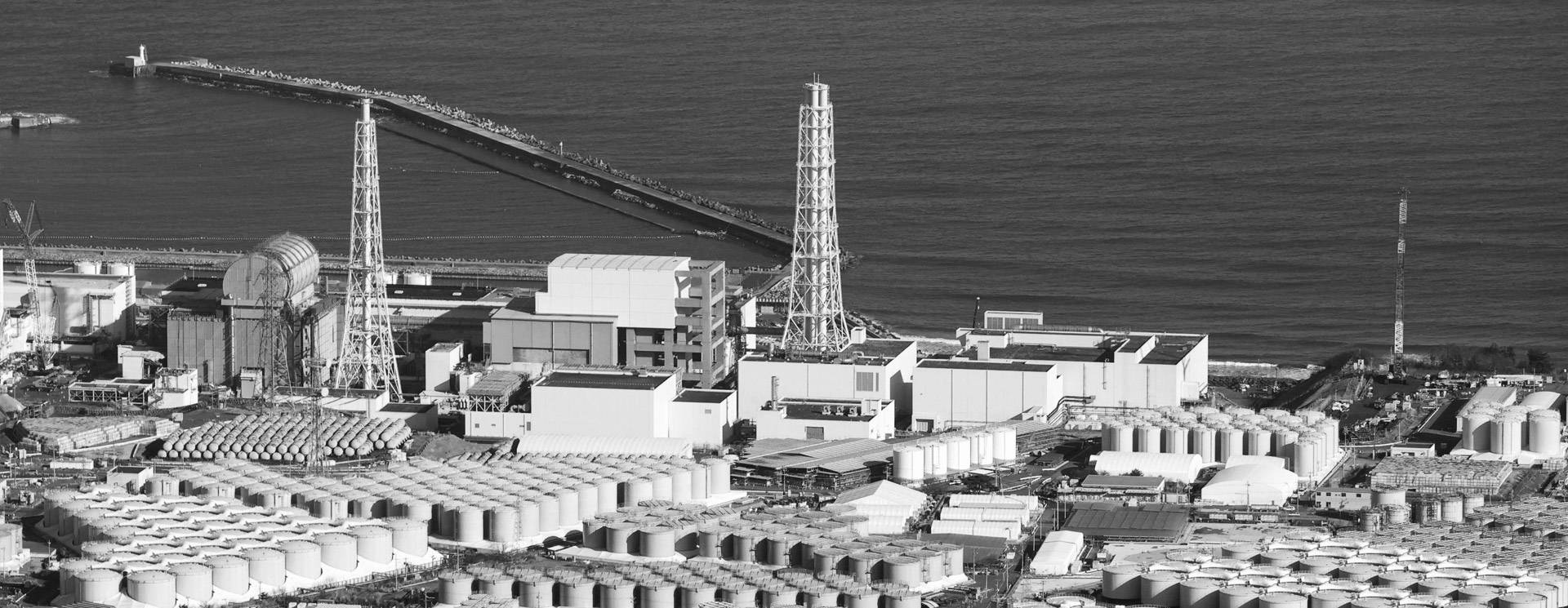
In April 2021, the Japanese government announced plans to discharge 1.3 million tons of nuclear-contaminated wastewater from the Fukushima nuclear power plant accident through an undersea tunnel to the offshore area 1 kilometer from the coast in the spring and summer of 2023.
Recently, 80% of the 1-kilometer undersea tunnel has been completed. The Japanese government discharges nuclear contaminated wastewater through the undersea tunnel will effectively reduce the local shallow water biological pollution in Japan, safeguard the safety of Japanese land, and transfer the harm of nuclear contaminated wastewater to other countries along the Pacific coast, which immediately aroused widespread concern of the international community.
In the blink of an eye, 2 years have passed, and it is reported that the Japanese side has recently started to prepare, and the equipment related to the nuclear contaminated wastewater discharge of Fukushima Daiichi nuclear power plant has started to operate, which means that the time of 1.3 million tons of nuclear contaminated wastewater into the western Pacific Ocean is approaching. The Japanese government's decision to discharge nuclear contaminated wastewater directly into the Western Pacific Ocean has caused strong protests from Japanese nationals and those of neighboring South Korea.
The reason why the international community is so concerned about nuclear contaminated wastewater entering the sea is because:
1. Large total amount of nuclear contaminated wastewater
The amount of nuclear contaminated wastewater discharged from Japan into the Pacific Ocean is 1.3 million tons (1.3 million tons of nuclear contaminated wastewater is enough to fill 500 Olympic-size swimming pools), and if 500 tons were discharged every day, it would take 30 or 40 years to finish. And according to the New York Times in April 2021, Japan's nuclear contaminated wastewater is still increasing at a rate of 170 tons per day.
2. Pollution of the marine ecosystem
The ocean itself has a huge purification capacity for pollutants such as transport, dilution, diffusion, oxidation, reduction and degradation. But this ability is not unlimited, when the local sea receives toxic and harmful substances, exceeds its own self-purification ability, it will cause the pollution of the sea. And up to 1.3 million tons of nuclear contaminated wastewater into the sea will inevitably cause serious marine pollution, destroy the habitat of marine life, and may lead to the collapse of the marine ecosystem.
3. The high toxicity of nuclear contaminated wastewater
The International Atomic Energy Agency (IAEA) had said in its 2015 report "Accident at the Fukushima Daiichi Nuclear Power Plant" that "this water was treated to remove radionuclides other than tritium, which cannot be removed." And the element tritium has a half-life of 12.3 years, meaning its radioactivity is negligible until 100 years later.
In addition, a scientific article by Ken Buesseler, a marine chemist at Woods Hole Oceanographic Institution, previously published in Science in 2020, says more research work needs to be done on the many radioactive elements in nuclear contaminated wastewater storage tanks to understand the potential risks of releasing nuclear contaminated wastewater from the tanks into the ocean, "In addition to tritium, the treated residual radioactive materials in wastewater include carbon 14, cobalt 60 and strontium 90. these residual isotopes were not discovered until 2018 and all take much longer to degrade, while these radioactive materials are more readily absorbed by marine organisms such as seafloor sediments and fish, meaning they may pose a longer-term potential hazard to humans and the environment and are more complex than the tritium (issue). "
These radioactive substances will eventually enter the human body through the marine food chain, directly affecting human health. Because tritium is difficult to metabolize when it enters the body, when the tritium levels in the body become higher and more toxic, people will suffer from infertility, anemia, liver enlargement and other conditions, and may even cause genetic mutations. Some nuclear experts have pointed out that the carbon 14 contained in Japanese nuclear contaminated wastewater is dangerous for thousands of years and can cause genetic damage. Strontium 90, on the other hand, can induce leukemia.
4. nuclear contaminated wastewater into the sea has a wide range of effects
The German Agency for Marine Scientific Research points out that the Fukushima coast has the strongest ocean currents in the world, and within 57 days from the date of discharge, radioactive substances will spread to most of the Pacific Ocean and spread to global waters after 10 years. And our country as Japan's near neighbor, whether Japan discharges wastewater to take near-shore discharge or oceanic public sea discharge, radioactive substances will spread to the waters of neighboring countries with the spread of ocean currents.
5. Adding "copycats"
As more and more countries in the world use nuclear energy, more and more countries will also face the dilemma of how to dispose of nuclear contaminated wastewater in the future. Once Japan's nuclear contaminated wastewater successfully enters the sea, it is likely that other countries will also imitate Japan and discharge nuclear contaminated wastewater into the sea in the future, which will be a great threat to both the global ecological environment and to human beings.
UN human rights experts have said that nuclear contaminated wastewater will bring great harm to human environment and human rights, and the Japanese government's decision to discharge nuclear contaminated wastewater into the sea is hardly an acceptable solution. The Pacific Ocean is the world's Pacific Ocean and is the common property of mankind, not the private property of one country. As a responsible country, it should actively seek a proper solution to the issue of disposing of nuclear contaminated wastewater, instead of discharging it in such a way that it threatens the global marine ecology and the safety of all human lives.
We call on the Japanese government to immediately stop its plan to discharge nuclear contaminated wastewater into the ocean and work together to protect the blue planet on which we depend for our survival.
